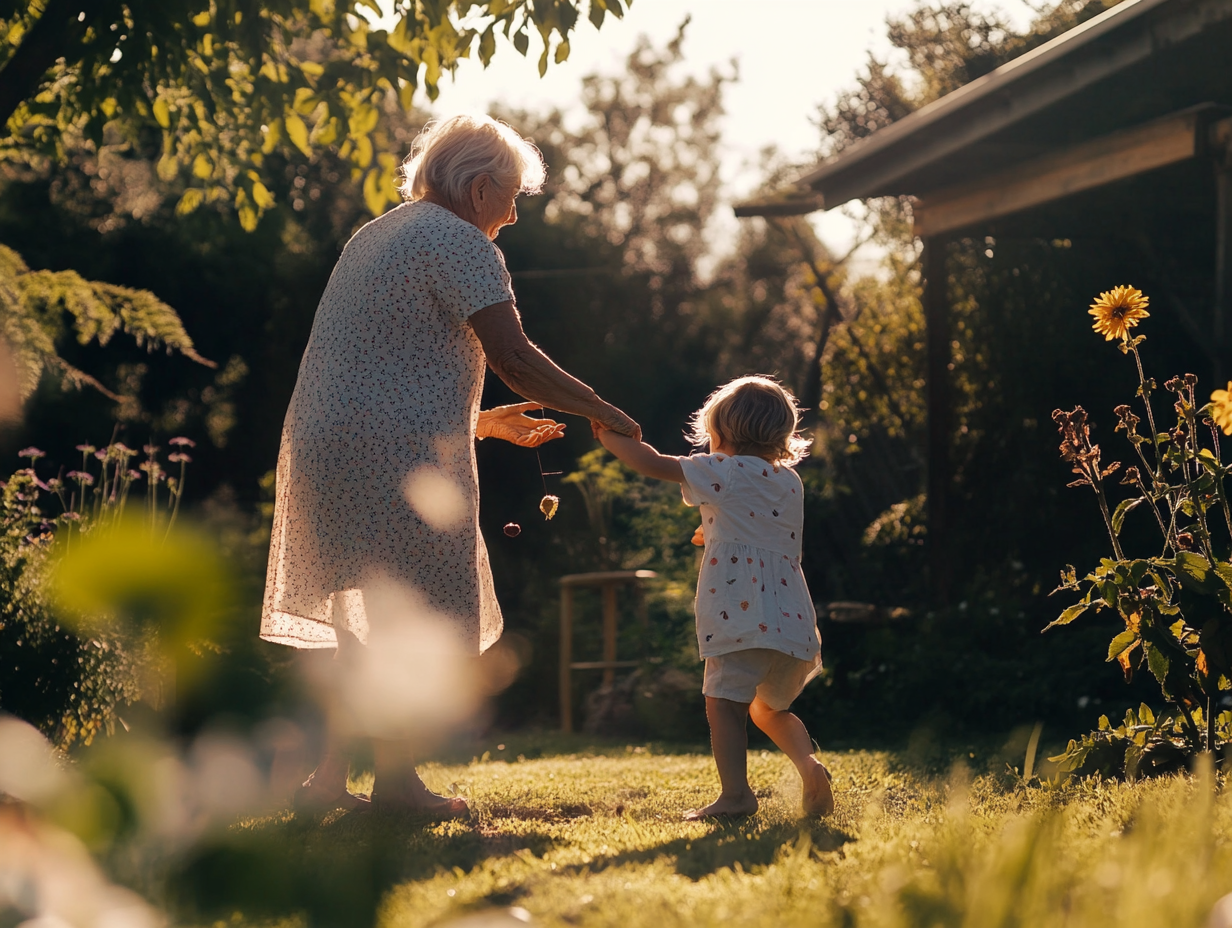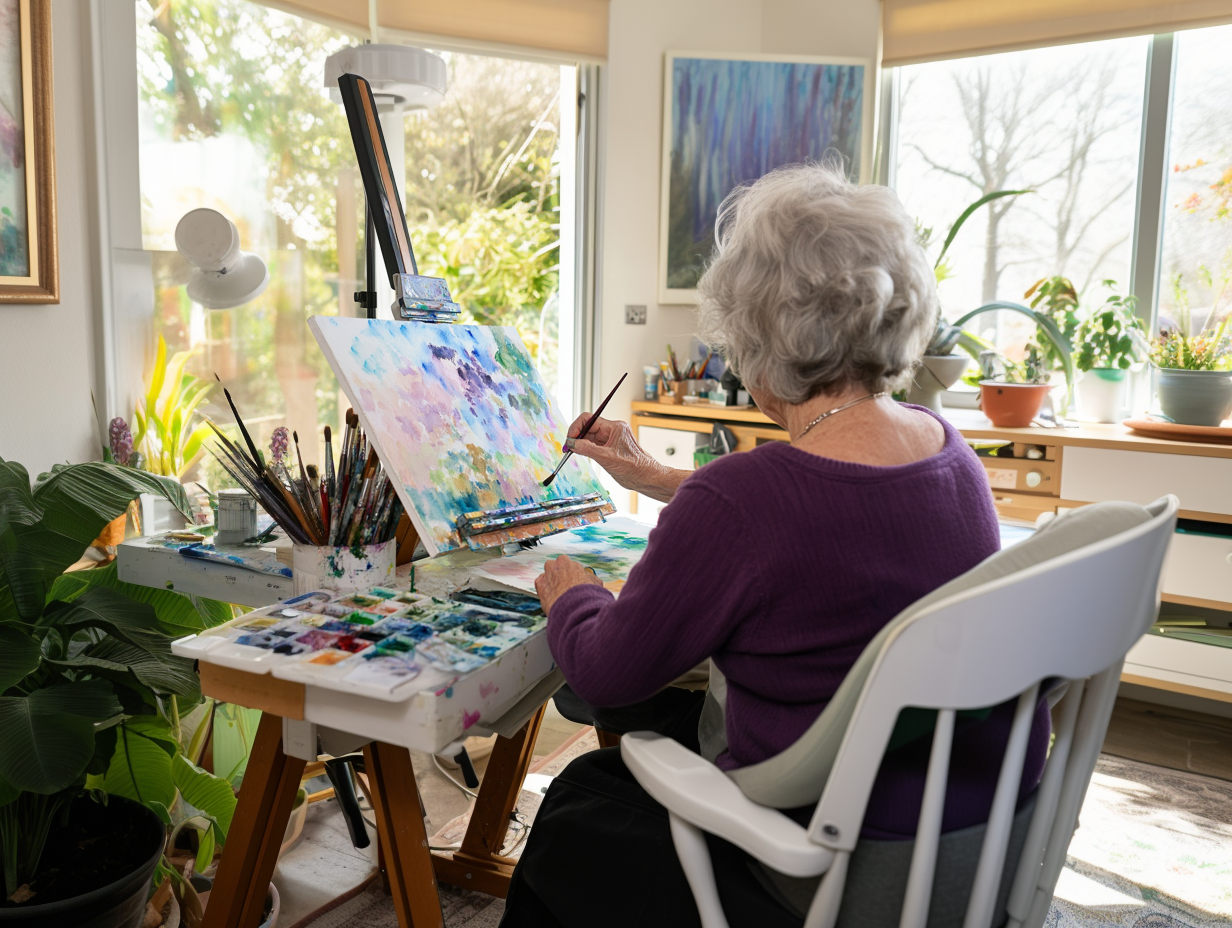Insights & Articles
Explaining dementia to a child can be one of the most emotional and complex conversations a family has. Children often notice changes in a grandparent long before adults acknowledge them aloud - forgetting names, …
As the global population ages, interest is growing in how nutrition may influence brain health. While there's no single “superfood” that can prevent Alzheimer's or other forms of dementia, mounting research shows that certain …
A dementia or cognitive impairment diagnosis can be overwhelming - but it doesn't mean giving up on mental stimulation, purpose, or growth. In fact, keeping the brain engaged after diagnosis is one of the …
With the rise of nootropics, brain-boosting powders, and memory supplements flooding the shelves, it's easy to believe there's a quick fix for sharper focus or long-term cognitive protection. But how many of these natural …
We often hear that sleep is important for our physical and mental health - but what if it also plays a key role in protecting our brain from dementia? Mounting research suggests that how …
When a loved one is diagnosed with Alzheimer’s disease, one of the first questions many families ask is: “Is it genetic?” It's a natural concern - especially when multiple generations have been affected. But …
Receiving a diagnosis of dementia is life-changing - for the person living with the condition and for their loved ones. It often brings a mix of emotions: confusion, fear, grief, and, for many, a …
Independence and safety are crucial for individuals with cognitive impairment, as they promote a sense of dignity and self-worth. This is where the concept of safe zones comes into play, offering a valuable solution …
As we age, medications often become part of daily life - supporting everything from heart health and blood pressure to cognitive function and pain relief. But with increased prescriptions comes increased complexity. For many …
Anxiety doesn’t just affect the person living with it - it touches everyone around them. For caregivers, partners, friends, and even young people in supportive roles, helping someone with anxiety can be deeply rewarding …
Living alone can be empowering for older adults - but it also comes with challenges. From remembering medications to staying safe in an emergency, solo living as a senior can raise concerns for both …
Caring for a loved one - whether it’s a parent with dementia, a partner recovering from illness, or a child with special needs - is one of the most meaningful things you can do. …
In a moving and relatable piece published by iNews, a daughter shares the emotional journey of watching her mother exhibit signs of dementia - while denying anything is wrong. The article, “My mum refused …
Dementia doesn’t happen overnight. It’s a progressive condition that unfolds over time, often in ways that can be subtle, unpredictable, and emotionally complex. In a clear and comprehensive article, Healthline outlines the seven stages …
When a loved one is diagnosed with memory loss or confusion, it’s not uncommon for the terms dementia and Alzheimer’s disease to be used interchangeably. But understanding the difference between the two is essential …
As countries around the world respond to rapidly aging populations, Japan remains at the forefront - both in its challenges and its proactive approach to dementia care. A recent editorial by Japan Forward sheds …
Memory slips can happen to anyone - but when forgetfulness starts to interfere with daily life, it may signal something more serious. In this thoughtful piece, Harvard Health Publishing offers guidance for families and …
Dementia can be difficult to detect in its earliest stages. The changes often start small - easy to dismiss, or mistake for “just aging.” But recognising the early signs is one of the most …
Diagnosis, Treatment, and Support When most people think of dementia, memory loss is often top of mind. But for some, the earliest symptoms involve difficulty with speech and language. This lesser-known condition is called …
Caregiving can be challenging for anyone - but for Black men caring for loved ones with dementia, it often comes with layers of emotional, cultural, and social complexity that are rarely acknowledged. A recent …
As people live longer, the importance of maintaining mental and emotional wellbeing in later life is becoming impossible to ignore. A recent article on MSN Health highlights the growing impact of loneliness, isolation, and …
Dementia is not a single disease, but a general term for a range of conditions that affect memory, thinking, and daily function. In a comprehensive guide, the Cleveland Clinic breaks down what dementia really …
The United States is hurtling toward a demographic tipping point - and it’s one that’s been long predicted but largely unprepared for, a time bomb, some would say. A recent Newsweek feature paints a …
The World Alzheimer Report 2024, published by Alzheimer’s Disease International (ADI), presents a vital and deeply human look into how global attitudes toward dementia have changed over the past five years. Based on responses …
Travel could provide crucial cognitive and sensory stimulation that supports dementia care.
Recent research offers hope for Alzheimer's patients and their families. Could intensive lifestyle changes not just delay cognitive decline, but potentially improve conditions for those in the early stages?
Imagine being able to detect dementia a decade before the first symptoms appear. According to a new study highlighted by The Mirror, that possibility may be closer than we think - and it could …
Navigating life after a dementia diagnosis can feel overwhelming - but Age Scotland’s Living Well with Early Stage Dementia guide offers a wealth of compassionate, practical advice to help individuals and families find clarity, …
For those living with early-stage dementia or mild cognitive impairment (MCI), staying on top of daily tasks can become increasingly challenging. Elli Cares steps in to offer a helping hand, with its notification reminders …
Most homes aren’t designed with dementia in mind - but they can be adapted to better support safety, comfort, and dignity. In The Apartment: A Guide to Creating a Dementia-Friendly Home, the Alzheimer’s Foundation …
As dementia progresses, it’s easy to focus only on what’s being lost - memory, communication, or independence. But people living with dementia still experience joy, creativity, and a need for purpose. In their article …
When a parent or loved one develops dementia, care responsibilities often fall on adult children. While many siblings approach this role with love and commitment, the realities of shared caregiving can lead to tension, …
Caregiver burnout is real - and common. When you're supporting a loved one with dementia or cognitive impairment, the emotional, physical, and mental toll can quietly build until you're overwhelmed. But there are ways …
Caring for someone with dementia is not just about remembering appointments or managing medications - it’s about adjusting your expectations, learning patience, and embracing the small, meaningful moments that still shine through the fog. …
Memory loss can be one of the most visible - and distressing - early signs of dementia. Whether it’s repeating questions, forgetting names, or becoming confused about daily routines, watching someone you care about …
A dementia diagnosis can feel like a door closing - but it doesn’t have to be. Contrary to widespread belief, people living with dementia can - and often do - live for many years …
Dementia doesn’t happen overnight. It’s a progressive condition that unfolds over time, often in ways that can be subtle, unpredictable, and emotionally complex. In a clear and comprehensive article, Healthline outlines the seven stages …
We often think of dementia as something inevitable - an unavoidable outcome of aging. But recent findings suggest that’s no longer the full picture. A growing body of research, highlighted in Medical Xpress and …
More and more older adults in the U.S. are choosing to stay in their own homes as they age—a concept known as aging in place. This choice can offer many benefits, such as maintaining …
Dementia can now be predicted up to five years before symptoms appear with a simple smell test, according to recent research.
Uber Health is launching its new service this summer: Uber Caregiver. This will enable users to add a caregiver to their Uber profile to coordinate rides, and deliveries, and track services in real-time, utilizing …
So, what should we be having for lunch if we want to support our brain health and reduce the risk of Alzheimer's? Dr. Patel has a go-to recommendation...
A common hormone already produced by the body could halt early-stage Alzheimer’s. Leptin, released by fat cells and involved in appetite regulation, potentially reduces the effects of toxic brain proteins amyloid and tau. These …
The connection between vitamin D and brain health is gaining attention, as researchers explore how this nutrient can support the neural pathways and protective mechanisms against age-related cognitive decline.
In the rapidly evolving AgeTech sector, focused on enhancing the well-being of seniors, the ethical aspects of privacy and security are paramount. Balancing technological advancements with respect for older individuals' dignity and independence is …
Recently (along with every other industry), there has been a growing interest in utilising AI and digital cognitive assessments to detect and diagnose dementia. Early detection is crucial as it allows for timely intervention …
Mobile technology has become increasingly popular over the last decade, and its applications are growing rapidly. In recent years, it has been used to help support people living with early to mid-stage dementia, allowing …
Caring for a loved one with cognitive impairment is a noble yet challenging responsibility. As a carer, it is essential to focus on your own well-being to provide the best care possible. In this …
In an important expert reaction published by New Zealand’s Science Media Centre, researchers responded to global findings showing that up to 40-48% of dementia cases could be prevented or delayed through changes to lifestyle …
We often think of brain health in terms of preventing decline, but it’s also about thriving - staying mentally sharp, emotionally resilient, and cognitively engaged throughout later life. In this valuable article, the Mayo …
As the global population ages, one question becomes increasingly urgent: How do we make technology that works for everyone - including older adults, those with disabilities, and people experiencing cognitive decline? A growing body …
As more older adults choose to age in place, the importance of having a home that’s not only comfortable but also safe becomes critical. According to AARP, 77% of adults over 50 want to …
As digital tools become more embedded in daily life, many assume they’re a reliable solution to social isolation - especially for older adults and people with dementia. But the relationship between technology, loneliness, and …
Loneliness among older adults in New Zealand has reached a tipping point - and Age Concern NZ is calling for bold, systemic change. In a recent NZ Herald feature, the organisation renews its call …
Caring for a loved one with dementia is one of the most meaningful acts a person can do - but it can also be one of the most demanding. And for many, this responsibility …
When someone you care about is living with dementia, being far away can make you feel powerless. You may worry about their daily safety, emotional wellbeing, and whether they’re taking medication or eating enough. …
Communication challenges are one of the earliest and most impactful changes in dementia. As language, memory, and comprehension evolve, conversations that once flowed effortlessly can become confusing or emotionally charged. But with a few …
Living with cognitive impairment can present unique challenges that affect daily life and independence. However, with technological advancements, a wide range of assistive technologies have emerged to empower individuals with cognitive impairments and enhance …
Cognitive impairment can present various challenges for individuals, affecting their ability to remember, communicate, and perform daily tasks independently. However, in today's digital age, technology has emerged as a powerful tool in promoting independence …





























































